1. Our defenders thank you for your prayers about Ukraine
Our dear friends and partners! We thank you for your prayers and support!
We thank God for our soldiers, through whom He provided such a large-scale and rapid defeat of the occupants throughout the Kharkiv region this week. The Ukrainian Army has made 388 settlements in this region free from occupants.

Our warriors witnessed miracles of God and His help in this unequal war.
One Ukrainian soldier addressed every prayer warrior with the words of thanks:
«Greetings to you, our dear friends and holy people praying for us. I want to express our deepest thank you because we see how prayers work in reality.
Two towns in the Kharkiv region returned to Ukrainian control within the last five days. That is a great achievement because during the battles for these towns we saw things that can’t be explained other than the guidance of God. Losses are minimal, and the effectiveness is maximal.
There is confusion in the enemy’s camp. The Russians were trying to escape, surrendering; it was such a pleasant sight. We don’t want to kill anyone, but it is the war. When the person surrounds himself, he doesn’t have to get killed. So, let there be more confusion in their camp. Let more enemies lift white flags and surrender. They might be able to get back home alive and healthy (unharmed).
And you, please, continue to pray. Because the power of prayer produces changes our hands are not capable of.
We thank you for every word you send to God about our protection. God hears and answers them. We see His saving hand! May God bless every one of us».
2. Balaklija, and "Our Father!" (The Lord’s Prayer)
While the armed forces of Ukraine are recapturing Ukrainian land from the occupiers moving kilometer by kilometer, we are finding more facts of crimes against our people who were under occupation.

After Balaklija was de-occupied, the occupiers' headquarters were found, that were used as a prison and a torture place.

The Lord’s prayer ("Our Father") was scratched there on the wall, helping the Russian violence victims during the extremely difficult times in their lives.

Ordinary life returns to the de-occupied territories following our troops. Our brothers hastened to bring food aid here, which was impossible before. Finally, the issuing of the pension for five months at once began because the elderly could not receive any social benefits due to occupation.
3. More than three hundred camps for displaced children and children from the de-occupied territories were held this summer
The camps held in every region, but Luhansk, because of adverse conditions for helding such events. We thank God the camps were held even in five areas with the highest number of shellings: Donetsk, Kharkiv, Kherson, Zaporizhzhya, and Mykolaiv.

Up to 39,000 children, teenagers, and young people participated in these camps.
The number of camps and other activities for children reached 400.
More than 3,000 participants called to God with a prayer of repentance or restored their relationship with Him.
Camps for children in the de-occupied territories were a special blessing and consolation for their participants.
For example, in Mena town of Chernihiv region, 21 participants of a three-day camp repented. This camp for 140 children and teenagers, was organized by a youth of “House of Gospel” Church of Lviv together with the local church.

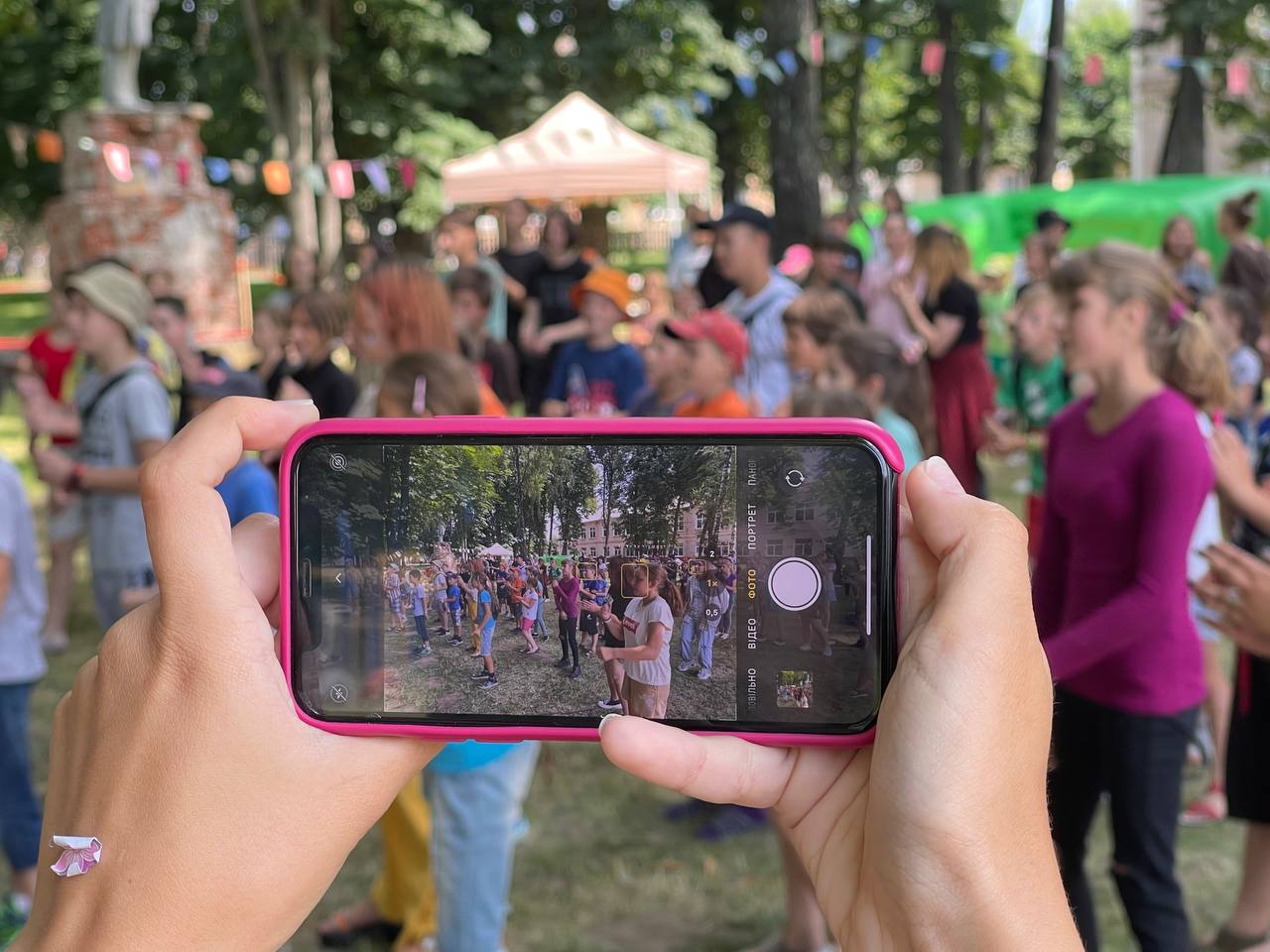


4. In Melitopol, the occupiers burst into the church during the worship time
Russian occupants continue to commit crimes in the occupied territories of the Zaporizhia region.

On 11th of September armed Russian soldiers burst into the “Grace” church of Evangelical Christians during worship time. The militants copied the passport data of everyone present at the church and according to the old traditions, accused them of "contact with the United States". The occupiers announced the temple “nationalized”, drove all the people out, and said not to come here anymore.
Pastor Mikhail Brytsyn, and brother Benjamin were taken to an unknown place. They were later released. Pastor Mikhail was given 48 hours to leave the area.

Earlier, Russian occupants took away the building of the “New Generation” Christian church near Melitopol and made it a “Ministry of Youth and Sports department” and organized their military base on a territory of the “Word of Life” church.
Worth to remind that the troops of the Russian Federation came to Melitopol on the 25th of February. It was the second day of a full-scale war. During March they were terrorizing and torturing the activists, the church ministers, and the city mayor.
5. Nikopol – the church building can not hold the number of people willing to listen to the Word of God
Nikopol town of Dnipropetrovsk region is shelled from Energodar every night. Despite the crippled infrastructure, constant victims, and regular power outages, the Nikopol church continues to be active and open to people. Since the full-scale war began, Nikopol churches have not canceled a single meeting.
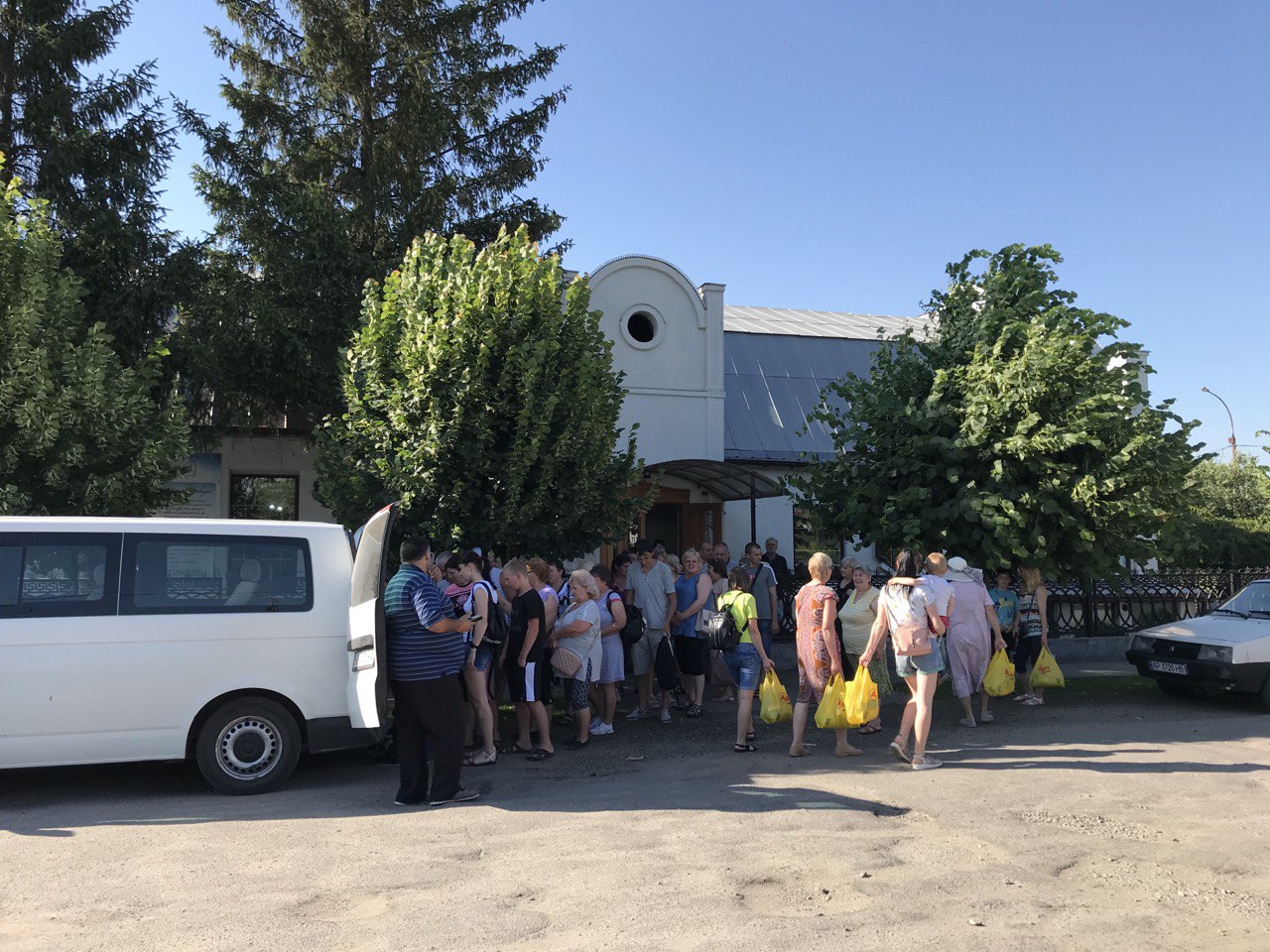
Besides regular meetings, Christians serve various needs of people within the walls of the House of Prayer. Many Nikopol residents have moved to the surrounding villages because it is safer there. Others have lost their jobs and found themselves on the brink of poverty. Another people need transport to evacuate from a front-line town. The church sees their pain and responds to it. Food packages, vehicles for evacuation, evangelistic events - these are the things that believers are serving their neighbors with.
“IDPs come to the church. They are thirsty for the Word of God. We had to hold an evangelistic meeting three times one Sunday because 600 people came, but the building is limited to only 200. People are receiving God into their hearts and pray the repentance prayer” shares Ivan Bokoch, a pastor from Nikopol.
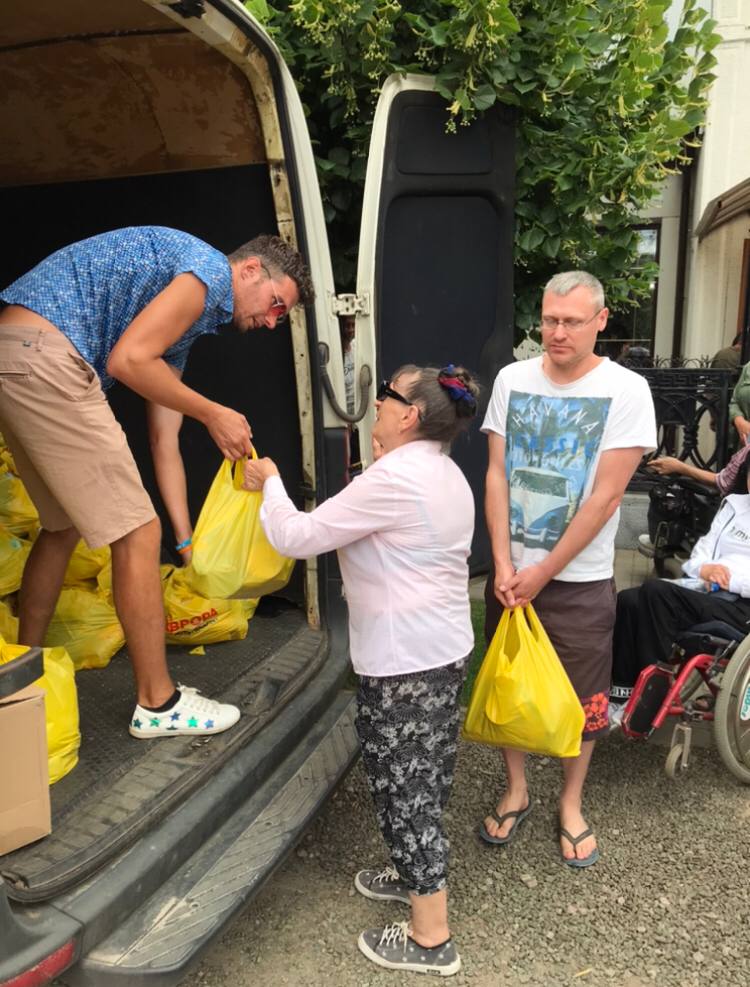
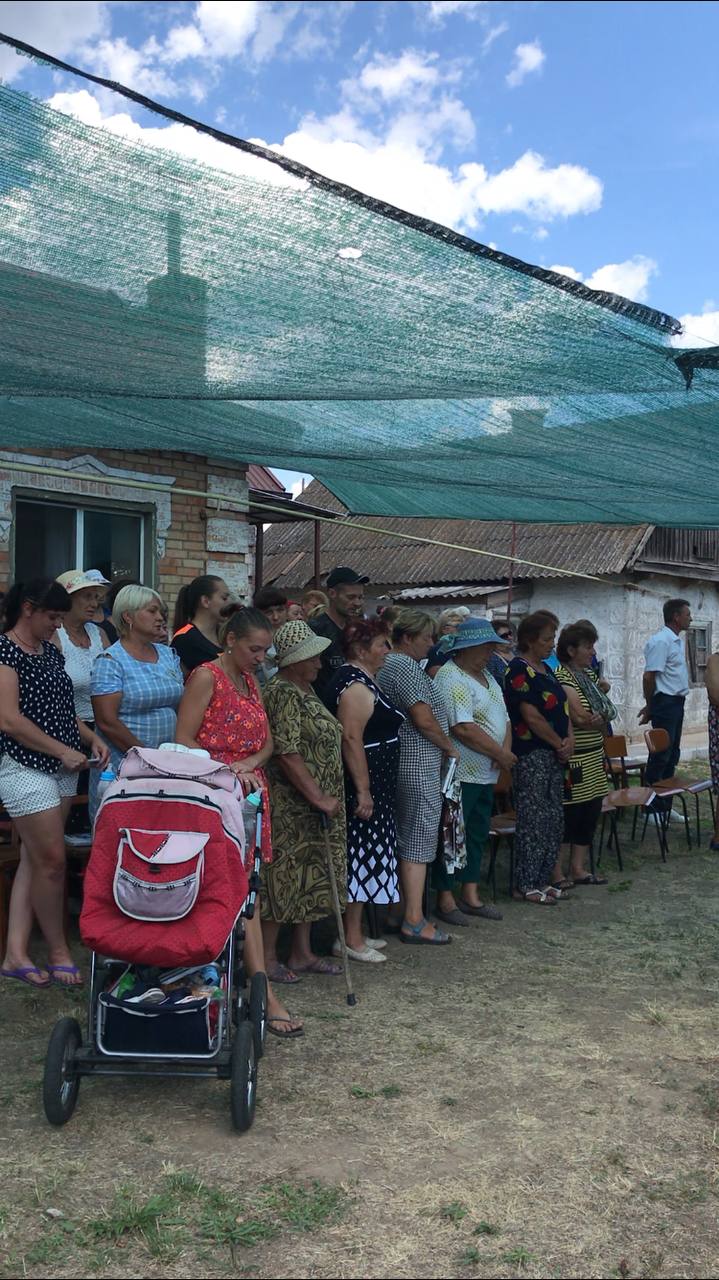
6. Fimiam Baptist church of Lutsk: spiritual work with IDPs
For the past five months, weekly meetings with internally displaced people (IDP) were held in the Fimiam Baptist church of Lutsk.

About 150 people listen to testimonies of God's care, studying the Word of God, getting to know the Gospel and the church community better every Saturday. Also they have time together with some tea and sweets. Then, to make the fellowship even closer and more open, people are divided into smaller groups coordinated by moderators.
To provide shelter, clothes, food, or to help with transport – this is how the church ministers Ukrainians in these difficult times. Taking care of persons physical needs, we want to help every soul to hear about the One who gives hope in the most difficult moments of every one’s life: Jesus Christ. Our job is to sow the Word of God and wait for the Lord to grow fruits in lives of these people.

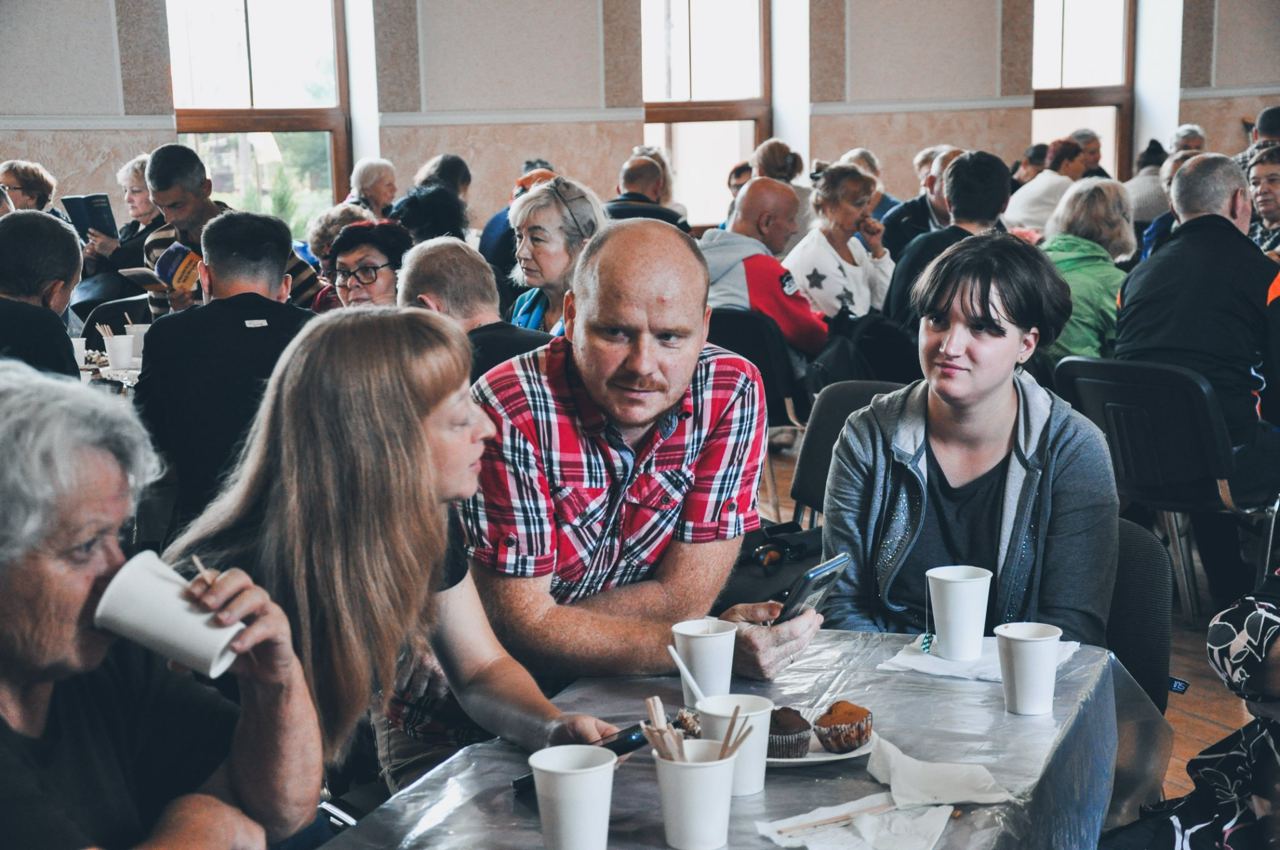

7. Brothers minister in pre-frontline settlements of Donetsk region
While the society closely monitors the events in the east and south of our country, some brothers and sisters zealously serve God and people in the pre-frontline settlements.

The brothers from the churches of Bakhmut and Chasiv Yar of Donetsk region are the great example of courage and dedication to the Lord. They stay and continue to minister despite the mortal danger and constant shelling. They provide help to the wounded and bury the dead, preach the Gospel and take the church visitors home after the service is over.
All of the available power lines to the area were destroyed few weeks ago, so the meetings were held with no lights. However, the church continues to minister to dozens of people thirsty for God's Word. There are only 30 church members out of 170 people present on the service.

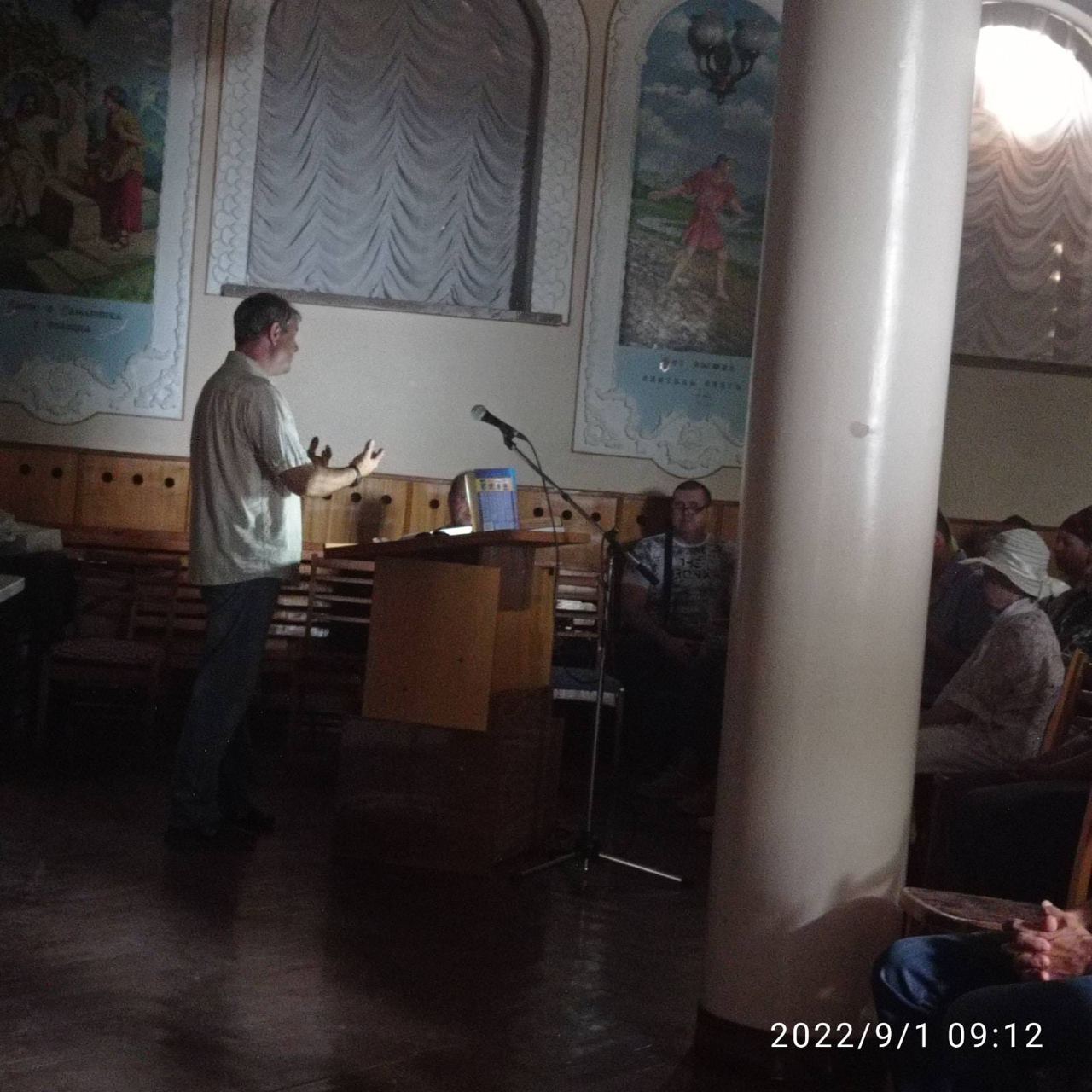
8. Half a million Donetsk region residents must evacuate to the West of Ukraine in the near future
They are to be resettled in three main areas: Rivne, Transcarpathia, and Ivano-Frankivsk regions.
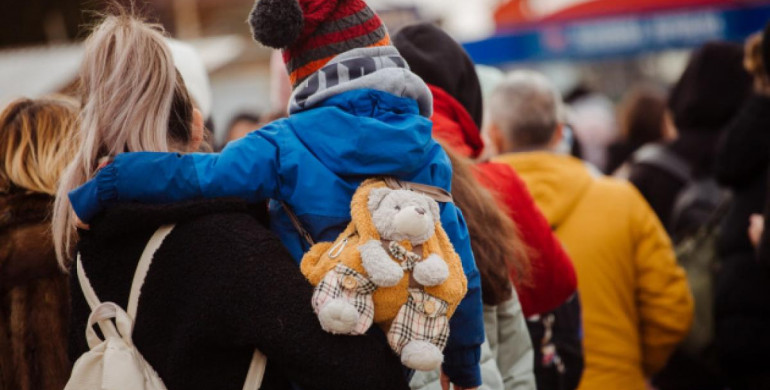
To make this possible, settlement institutions and local churches are to arrange more places for rapid accommodation of internally displaced persons.
Pastors appeal to churches to prepare their homes for the possibility to accept a new flow of IDPs and to get ready for the cold season. That requires preparation of a minimal stock of things needed in case of a complete absence of natural gas, electricity, and centralized heating for at least a few days.

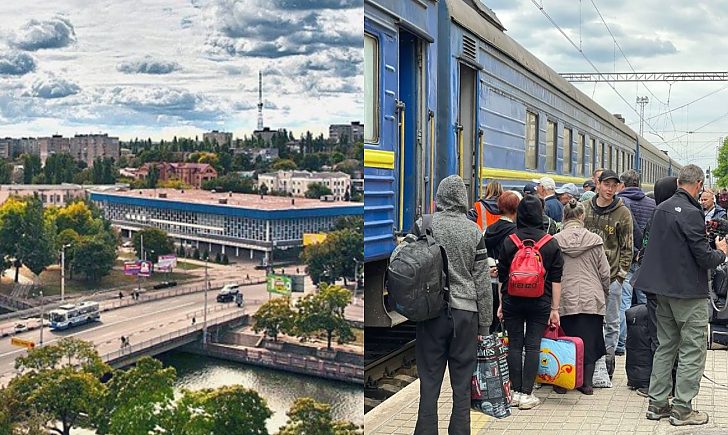
- Hits: 3983
